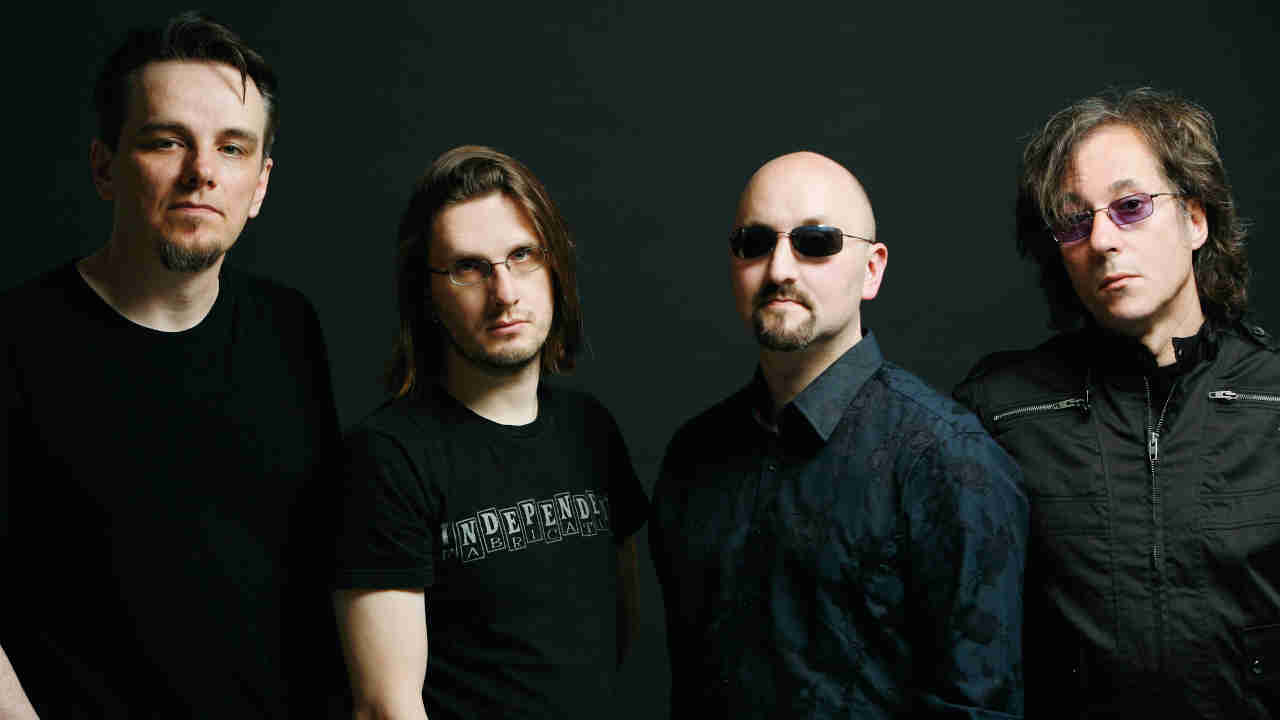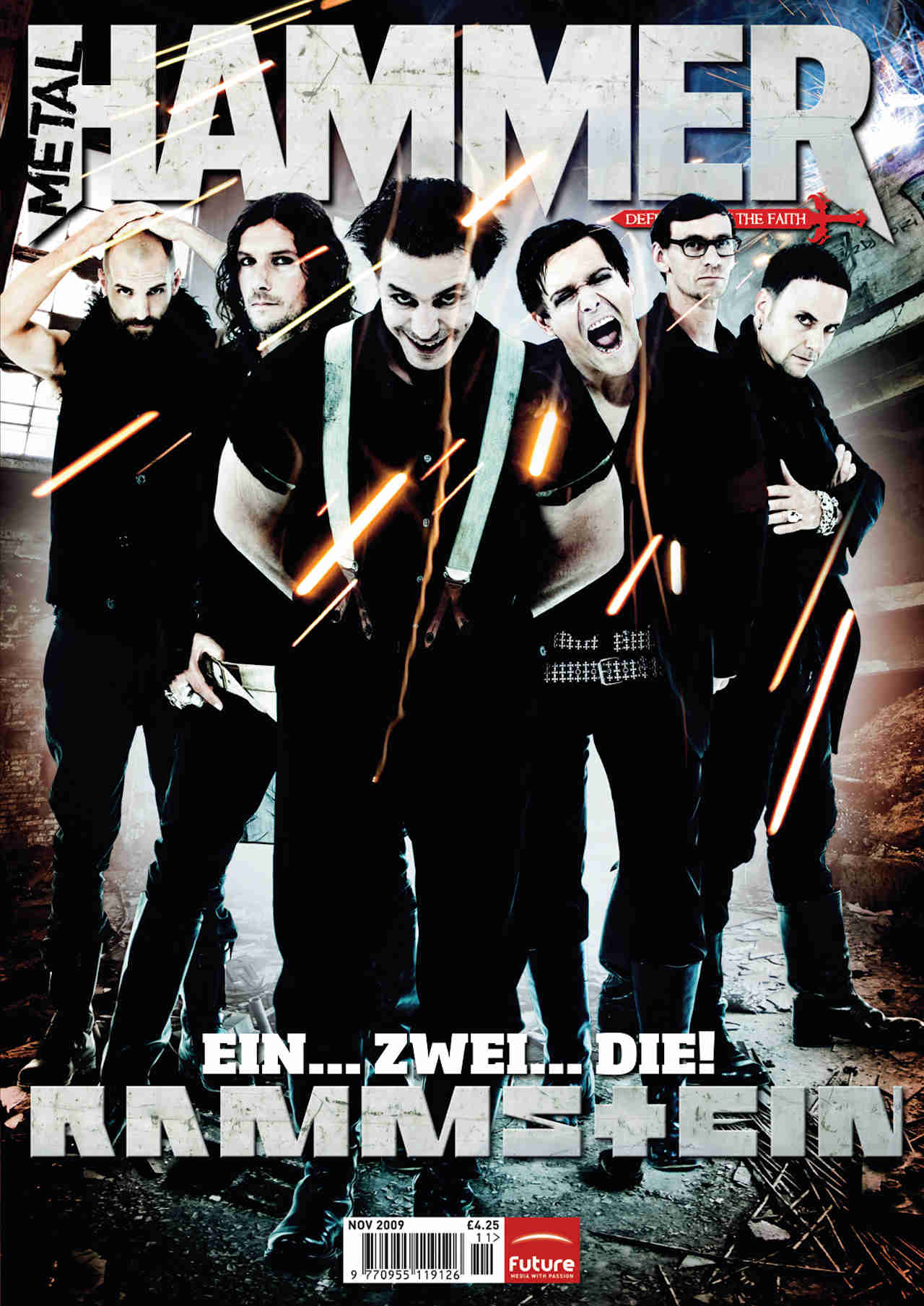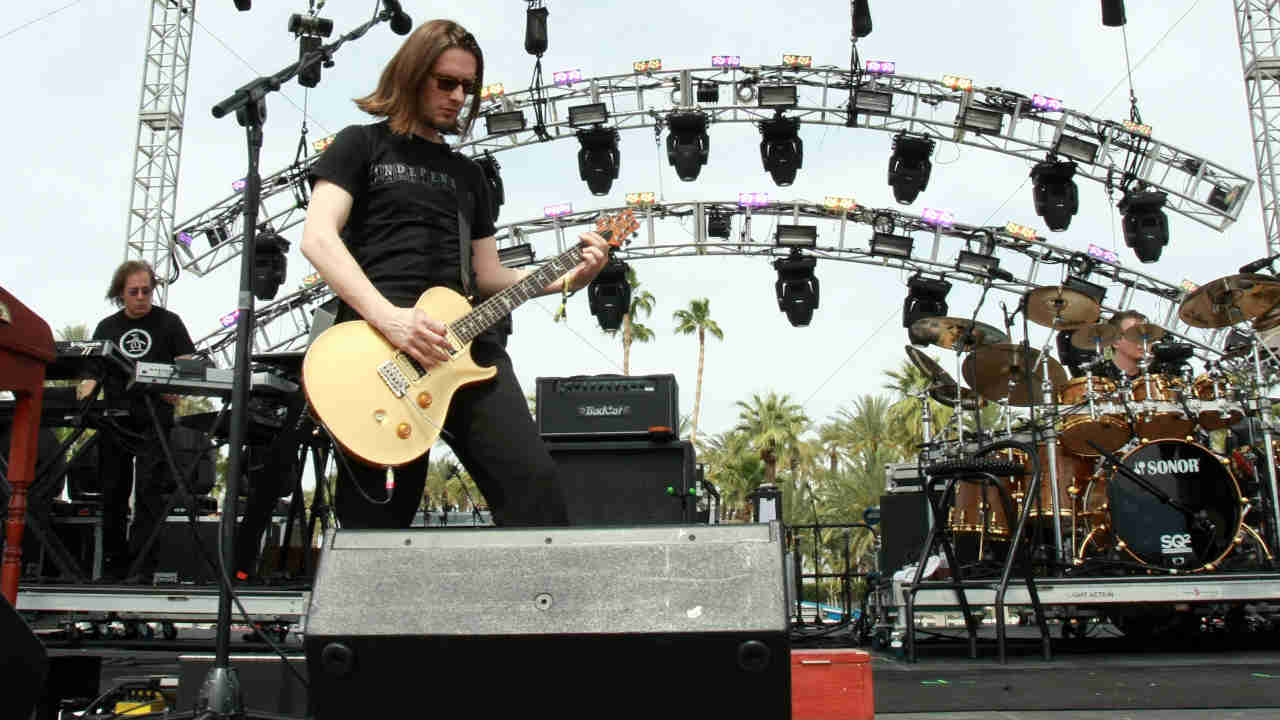“I could be listening to Abba one minute and then Morbid Angel. It doesn’t seem strange to me”: How Porcupine Tree reinvented progressive rock for the 21st century metal generation
Porcupine Tree’s 2010 album The Incident capped their rise from cult psychedelicists to prog metal giants

Porcupine Tree did more than anyone to bring prog into the 2000s with metal-edged albums such as Fear Of A Blank Planet and Deadwing. In 2009, as they released their 10th album The Incident, mainman Steven Wilson dived back the band’s long and unexpected history and his relationship with metal.
All rock bands want to be loved. Some may claim that their only real concerns are creative and artistic, but the truth is that everyone who has ever picked up a guitar and written a riff wants to pick up a few fans along the way. But rare are the bands who can move steadily forward for a decade or two, weathering the vagaries of time and fashion while gradually gaining momentum and earning respect and credibility in increasingly huge amounts.
Although ostensibly a band that have long belonged to the progressive rock world, Porcupine Tree have spent the last few years expanding their audience – and, fittingly, their sound – and now find themselves in the enviable position of being one of the coolest and most intensely revered rock bands on the planet, and it’s by the world of metal that these hardy veterans have been most enthusiastically embraced in recent times. Thanks to founder member Steven Wilson’s brotherly relationship with Mikael Åkerfeldt and Opeth, and, more pertinently perhaps, to the mounting number of skull-flattening metal riffs that have been seeping into Porcupine Tree’s adventurous and subtly experimental sound over their last few albums, the band are one of the few acts to gain widespread acceptance from metalheads without making a wholesale shift to a metallic sound.
“It’s been very surprising to me how much of a crossover we’ve made into the metal side of things,” Steven tells Hammer. “We’re clearly not a metal band like Opeth, who’ve come from the metal tradition and combined other aspects into their sound. We’ve gone the opposite way. I think metal fans are generally very open-minded compared to certain fans of other styles of music. I speak as someone who started out as a metal fan and the New Wave Of British Heavy Metal was the first music I loved. It was an incredible education, it opened a doorway to many other kinds of music, and that’s perhaps the way that Porcupine Tree works. There’s enough of a doorway for people to walk through if they love metal music. There’s a hook for them, something they recognise, but then they immerse themselves in all these other elements and they realise that actually, despite themselves, they quite like some of those other things! If that leads them onto other styles of music then that’s fantastic because that’s exactly how it worked with me.”

A metal fan as a teenager, Steven partly abandoned his metal roots as he began to make music of his own, forming Porcupine Tree in 1987 as a pastiche of the psychedelic and progressive rock bands of the late 60s and early 70s that had become essential parts of his listening habits.

A decade or so ago, however, a fan presented him with a CD full of new and overtly progressive-sounding metal bands, including Opeth. Converted anew to the ways of the metal world, he has made no secret of his love for bands like Tool and Meshuggah, and you can hear their influence in Porcupine Tree’s more recent music, as crunching, polyrhythmic riffs and moments of startling heaviness mingle with the band’s more restrained and atmospheric moments. It’s a frequently stunning combination and one that has been essential to their current popularity.
“I still like metal in principle,” he says. “but as a texture it’s very samey and I can’t listen to it all the time. I find it hard to listen to for any length of time, so that naturally led me to our sound where you get these little bursts of metal. It explodes out of something that is patently not metal, so it has this great impact. That’s why Opeth are so powerful for me. You get this incredible light and shade, so that when the brutality kicks in it’s incredibly powerful! I like to think that that’s how the Porcupine Tree dynamic tends to work.”
Sign up below to get the latest from Metal Hammer, plus exclusive special offers, direct to your inbox!
Challenging expectations and taking music fans into unfamiliar territory has long been part of Steven’s ethos, but even by his band’s usual standards of idiosyncrasy, new album The Incident is a bold and audacious piece of work. A single 55-minute “song cycle” which takes in every conceivable element of Porcupine Tree’s sonic world so far, plus numerous unprecedented elements and ideas, and moulds them into a consistently fascinating musical journey; it’s a defiantly ambitious and unapologetic concept album, but one that has as much to do with the modern age as it does with the story-telling pomposity of 70s prog bands like Pink Floyd and Genesis. It’s hard to imagine any other modern rock band getting away with it…
“Let’s just say that I wanted a challenge this time and I didn’t want to repeat what had gone before,” says Steven. “One of the things I’ve always wanted to do is to do an album-length piece of music. But it’s actually very hard to do. The best analogy I can give is that it’s like going from writing short stories or commercials to writing a full-length novel or a feature-length film. It’s a whole different kettle of fish because you have to get structure and you have to get development and a sense of shape and evolution across the piece. It sounds easier than it is! I thought it was time to have another go at it, particularly coming off the back of [our 2007 album] Fear Of A Blank Planet where there was a very long piece of music that went down extremely well with people. When you have a situation like that you kind of feel slightly vindicated and more confident about playing to your strengths, and our strengths have always been in the more long-form pieces.”
Now that the word ‘prog’ is no longer regarded as a mark of shame, Porcupine Tree are finally able to reach and delight the kind of huge audiences that they have really deserved all along, such is the brilliantly inventive but accessible nature of their trademark sound. With so many plausible peers like Tool, Mastodon, Opeth and Muse producing music that is bending and broadening the minds of eager music lovers, there has never been a better time for an album like The Incident that takes an eclectic mix of sounds and atmospheres as its base level starting point.
“We set out to make music inspired by the music that we love, and you can hear the very natural consequence of that,” says Steven. “So people say to me all the time, ‘It’s really weird, your music, because one minute it’s really ambient and the next it’s like death metal’, but to me that’s not weird because that could be my listening diet. I could be listening to Abba one minute and then Morbid Angel. It doesn’t seem strange to me. It doesn’t occur to me that it’s a bizarre leap. That’s ultimately our trademark: this incredible range of styles all woven together, even though on paper it should fall apart and be a horrible mess.”
In stark contrast to Fear Of A Blank Planet, which enabled Steven to rage against soulless consumerism and the vacuous, material obsessions of the modern age, The Incident is an almost unbearably poignant and personal lyrical piece that hints at – while never quite focusing in on – an intimate and vulnerable tale of loss, grief, sorrow and resignation. While reluctant to be more specific about the subject matter, he admits that this is an album that looks inward, rather than lashing out at the world, and one that has immense emotional impact as a result.
“Yeah, …Blank Planet was very much raging against the outside world,” he notes. “It was that well-used approach of the artist singing about the alienation he feels from the world he lives in. Everyone’s done that, from Radiohead’s OK Computer back to Dark Side Of The Moon, but this one is much more insular. It’s more personal and it’s more stream of consciousness and less self-conscious, but I think it’s impossible to write about anything, whether it’s something that appears to be fiction or something auto- biographical, without delving down into this well of experience and emotional experiences. Whatever I write about, whether it’s drawn ultimately from something fictitious, of course I’m investing a lot of my own personal experiences in that in order to invest the lyrics and the song with some kind of emotional credibility. I’ve written songs about nuclear war and of course I’ve never experienced a nuclear war, but you can still delve down into your- self and pull out something relevant.”

In their earlier days as a primarily studio-based project, Porcupine Tree’s live appearances were few and far between, but in recent times the band have become veritable road hogs – another factor in their ever-increasing profile. Seldom afraid to take a risk or two, either on record or on stage, they are currently preparing to take The Incident out on the road and, in true prog fashion, they will be performing the album from start to finish each night, eschewing all applause in favour of delivering the ultimate musical trip for their faithful supporters.
“I was terrified before rehearsals that we weren’t going to be able to play the fucking thing!” laughs Steven. “You work hard on the record and you don’t think about the logistics of performing it live, but we’ve cracked it and I’m looking forward to rolling it out now.”
In keeping with rock’n’roll tradition, will the second half of the show be the traditional ‘greatest hits’ set?
“Well, we don’t have any hits! Ha ha! You mean the popular fan favourites? Well, it’s always slightly tricky because we could go out for evermore and play our better-known songs but it’s not the right thing to do if you feel dead inside when you play them! If you’re really bored, it’s not fair to you or the audience to go through the motions. The über-fans are sick to death of those songs too, so we’re walking a delicate line here! But we’re pulling out a few things that perhaps are a little bit more obscure and the hardcore fans will appreciate, but we’re trying to keep enough of the hits. There should be enough to satisfy everyone. I’m looking forward to it!”
Originally published in Metal Hammer issue 198, October 2009

Dom Lawson has been writing for Metal Hammer and Prog for over 14 years and is extremely fond of heavy metal, progressive rock, coffee and snooker. He also contributes to The Guardian, Classic Rock, Bravewords and Blabbermouth and has previously written for Kerrang! magazine in the mid-2000s.
